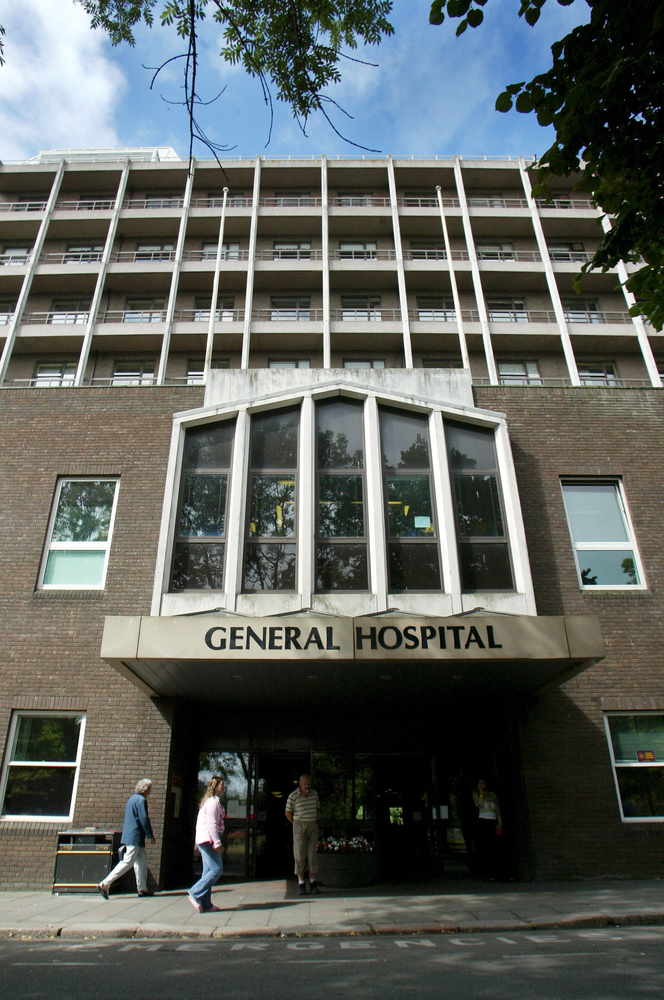Not everyone living in Jersey has full access to free health care, and it has caught some people out in a big way. Elaine Walker reports
WITH its reputation of low levels of crime, warmer climates, beautiful beaches and a relatively wealthy economy, Jersey has always been a magnet for people in search of a better life.
But moving to Jersey comes at a cost – particularly if you don’t have the correct health insurance cover.
A few months ago someone who had been in the Island for just five months ended up out of pocket to the tune of £30,000 after being admitted to the General Hospital’s Intensive Care Unit with a life-threatening illness.

Because she was not an ‘entitled’ resident and did not have the correct health cover, she was not entitled to free health treatment.
This is just one of a number of cases Citizens Advice has come across since the Health and Social Services Department introduced a residents and non-residents charging policy on 18 August 2014.
The primary purpose of this policy is to deter people travelling to the Island with the intent of accessing free health care and treatment ,and also to ensure that free access to the department’s services is an appropriate, fair and reasonable use of States funds.
- A client came to live in Jersey in 1999, aged 20. He worked in the UK for three years from 2009, returned to Jersey two years ago and did voluntary work, which resulted in no social security contributions being received. He was hospitalised and received a bill for £4,000.
- A Jersey-born client attended university in 2002 and returned to Jersey in 2015. She has a medical condition that requires treatment and has been advised by the Hospital that she may not qualify for free treatment.
- A pregnant client was charged £274 by the Hospital for antenatal treatment, as she had gaps in her social insurance contributions due to unemployment.
- A client was admitted twice with severe morning sickness following an unplanned pregnancy. She was charged £1,500, payable within 28 days. She was asked to sign a document while unwell and wasnt sure what she had signed.
- A client and her partner had come to work in the Island and were not aware of fees. She returned to Jersey in January 2014 but only started work in June. She suffered stomach pains, was admitted to hospital and an operation was performed. She received a bill for £2,790.
- A client resident in the Island for five months fell ill and following an operation received a bill for £3,000.
- A clients parent was on holiday in the Island and as a non-resident did not qualify for free treatment when he became unwell, and was quoted £8,000 to return the parent to the UK.
- A client has a property in Jersey but is no longer ordinarily resident. Following a heart attack while in the Island, he was informed that he would be charged for medical care.
- A pensioner, resident for 58 years, received a bill for £399 following hospitalisation. On querying the bill, she was asked to prove her permanently entitled status.
Although Citizens Advice recognise that the policy has been introduced to ensure that taxpayers are protected from any abuse of the system, they are calling for the States to ensure that everyone is made aware of this policy.
A spokesman for the organisation said: ‘The policy has been developed in the best interests of Jersey residents and taxpayers, and places significant emphasis on the expectation that those receiving free care are making an ongoing social and or economic contribution to the Island.
‘The policy clearly states that it is the responsibility of individuals to check with the Health and Social Services Department to ensure that they have accurate information in accessing their eligibility – either as a resident or visitor – for access to free health treatment.’
Citizens Advice contacted the JEP, having seen an increase in the number of clients who have found themselves in financial difficulties as a result of hospitalisation.
So far this year, 29 people have approached them with this problem.
The spokesman said: ‘We are aware that the Hospital finance department has an appeals process, and we do not know how frequently cases are referred upon appeal, or, for that matter, how many unpaid bills there are in relation to unpaid fees.’
Citizen’s Advice said that employers should be aware of this issue and are urging them to encourage their staff to be covered.
‘We assume that there are a multitude of providers, but the type of cover will vary depending on an individual’s circumstances,’ they say.
‘Perhaps cover should be arranged prior to arrival in the Island.’
They also say it is essential that seasonal workers have health insurance, as fees can run into tens of thousands of pounds if they end up in hospital and are not insured.
‘In some cases, families or individuals are faced with demands for payment that they cannot meet,’ the spokesman said.
‘If an agreement cannot be reached, ultimately the finance department may obtain a judgment through the courts, and if resident, a wage arrest can be ordered.
‘This will sit on the individual’s credit history until the debt is settled, and may prevent the client from certain areas of employment and make it difficult to obtain any credit facilities.’
Anyone moving to Jersey or returning to the Island having lived or worked elsewhere for five years or more is advised that they will have to pay for most healthcare, and will not be eligible for free care or treatment.
A spokesman for the Health Department said: ‘Its primary purpose is to deter people travelling to Jersey with the intent of accessing free healthcare and treatment, and to ensure that free access to the department’s services is an appropriate, fair and reasonable use of States funds.
‘The policy is not a money-making scheme, and seeks only to recover costs.
‘It has been developed with a view to ensuring that the best interests of Jersey residents and taxpayers are taken into account, and it places significant emphasis on the expectation that those receiving free care and treatment are making, or have made, an ongoing a social and/or economic contribution to the Island.
‘The Hospital finance department has an appeals process to deal with anyone who finds themselves in financial difficulties as a result of hospitalisation.
‘This process is overseen by the Health Minister.
‘Since August 2014, about 40 appeals against charges have been lodged.’

The JEP has learned that about £31,000 in unpaid hospital bills has been written off as ‘non-recoverable’.
So what happens if someone cannot pay for their hospital treatment?
The Health Department spokesman said: ‘If a person from a country which has a Reciprocal Health Agreement with Jersey is hospitalised, the acute episode will be dealt with and no charges will be payable for the diagnostic tests, treatment or hospital stay.
‘Once the acute episode of treatment has finished and the patient is deemed suitable for discharge or hospital-to-hospital transfer, any further treatment – including rehabilitation services or follow-up diagnostic tests – and any continuing or further stay in hospital or repatriation would not be covered under the RHA and would therefore be charged for.
‘If someone is from a country which has no RHA with Jersey, attendance at A&E would not have to be paid for, but if they required admission, all their subsequent treatment would need to be paid for.’
The department has admitted that more needs to be done to raise awareness.
‘The vast majority of Islanders meet the eligibility criteria for free treatment and need not be concerned that they will be liable for any charges,’ the spokesman said.
‘Those who are likely to be ineligible are people who have recently arrived in the Island to live and/or work, plus those visiting on holiday.
‘The information is readily available on the gov.je website, including contact information for anyone with any queries.
‘However, we agree that more should be done to raise awareness and we would welcome any initiative that will do this, in addition to correcting misapprehensions.
‘Jersey is not part of the EU, meaning that the European Health Insurance Card (previously E111) does not apply here.
‘And the Island does not fall under the National Health Service. Jersey residents travelling to the UK have similar cover under the RHA covering emergency treatment only.
‘The message to visitors about ensuring that they have insurance cover for care or treatment that would not be provided free is an important one, and something that we endeavour to draw attention to, in partnership with other States departments like Social Security, Economic Development and External Affairs.
‘We also believe that employers have a responsibility to highlight this matter to people who are moving to Jersey or are working here temporarily.’
More information about the resident and non-resident charging policy can be here
When asked if they thought it was acceptable for some patients to be waking up from an operation in their hospital bed to be faced with a member of the hospital’s finance department wanting them to sign documentation in relation to fees, the spokesman said: ‘Explanatory notices are clearly visible in the Emergency Department to advise patients of possible charges and eligibility.
‘Where possible, in non-emergency situations, we would aim to clarify the question of eligibility and charges prior to treatment.
‘In cases where this has not been possible, for example after an emergency admission, the patient would be made aware of the policy, once medical staff confirmed it was safe to do so.
‘The department takes seriously its responsibility to taxpayers and the public purse to recover all debts, using court action if necessary.
‘Alternative routes are available through the charges appeal process overseen by the minister.
‘This underlines the need for adequate travel and medical insurance.
‘We will assist those who cannot pay immediately by offering repayment options.’






